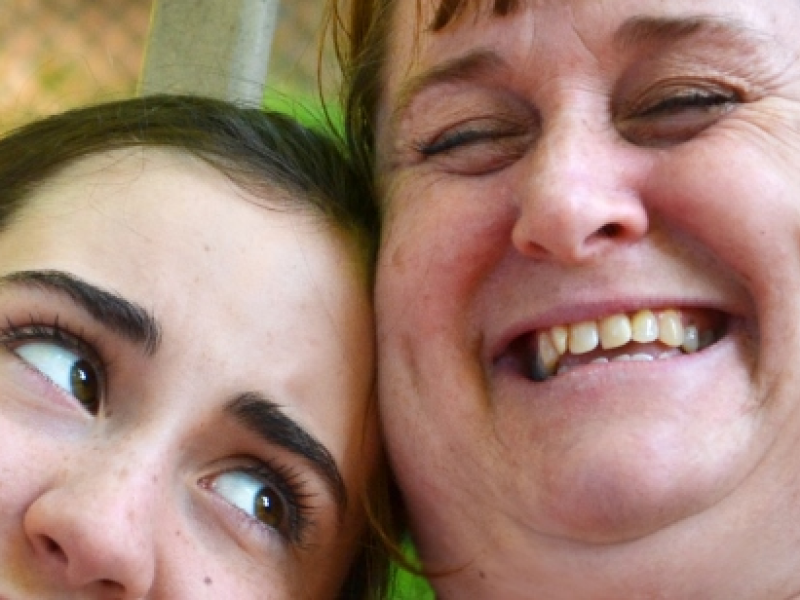Sleep
Sleep and mental health are linked. Mental ill-health can affect sleep and lack of sleep can affect mental health. For example, anxiety can cause insomnia and insomnia can cause anxiety.
Sleep patterns can give clues that mental ill-health is present or developing. Sleeping poorly over a long period, having trouble going to sleep and frequently waking up early may all be symptoms – or causes – of anxiety or depression. Poor sleep can also be a signal of a manic episode in people with bipolar disorder. Someone with schizophrenia may sleep very poorly when they’re stressed.
Tips to improve sleep
- Go to bed and get up at the same time each day so your body clock is set to a routine.
- Avoid napping during the day
- Relax quietly for an hour before bed
- Avoid caffeine (or other stimulants) in the five hours before bed
- Do not rely on alcohol to help you fall asleep – alcohol actually disturbs your sleep (and relying on it can lead to dependency).
If you persistently have trouble sleeping, see your doctor.
For more information visit:
Check out the Sleep Genius app for Android and Sleep Genius app for iPhone
Exercise
Everyone who’s physically able can benefit from regular exercise. It can ease the symptoms of mild depression, anxiety and help in losing weight and lowering high blood pressure. Improved fitness makes you feel good about yourself and helps you sleep better.
Conditions, such as depression, can make things like getting out of bed hard but you don't have to train like a top athlete to get results.
Tips to improve exercise
- Start gently. A walk around the block is great, especially with someone else to keep you company.
- Slowly build. Set an eventual goal of 30 minutes of moderate-intensity exercise on most, preferably all, days of the week. Moderate intensity means anything that causes a slight increase in your breathing and heart rate.
- Keep it simple. Consider activities like fast walking, playing actively with children, taking the stairs, cycling, dancing or mowing the lawn.
- Break it down. If time is a factor, consider breaking your 30 minutes into ten-minute sessions.
Talk to your doctor before starting a vigorous exercise program. People living with bipolar disorder should be aware of the possibility of over-exercising while they’re in a phase of mania.
Mindfulness meditation
Meditation is a good way of calming your mind. It simply means focusing your attention to reach a state of clear thinking and concentration.
One type of meditation is mindfulness. Mindfulness is a very useful skill that anyone can learn. Gradually those thoughts stop and your mind goes into a state of calm that’s good for your mental health; there’s a lot of evidence that practicing mindfulness lowers anxiety and depression levels.
Tips to improve mindfulness
- Focus on the present moment and not paying attention to the thoughts that drift across your mind, whether they’re positive or negative.
- Focus on something – your breathing, the ticking of a clock or drinking a cup of tea, for example. You can do it anywhere.
- Consider joining a class or use books, YouTube videos or instructions online.
Find out more at mindfulness courses at This Way Up.
Try e-couch, Mind the Bump, Smiling Mind, or This Way Up.
Health eating and drinking
When you stick to a diet of nutrient-rich foods, you're setting yourself up for fewer mood swings and an improved ability to focus. Studies have even found that clean diets consisting of mainly whole, unprocessed foods, can help with symptoms of depression and anxiety.
Managing alcohol and other drug use
People use alcohol and other drugs to change the way they feel. And they do change the way you feel – but often for the worse, which is not good news if you have mental ill-health. For example, alcohol, which is often used to relieve anxiety and depression, can actually make both conditions worse.
Some drugs may trigger mental ill-health. Cannabis can cause a first episode of schizophrenia in someone who’s at risk of psychotic illness. Ice can cause psychosis, while steroids can trigger paranoia.
Alcohol and other drugs may interfere with – or even delay – treatment. For example, the continued use of drugs such as Valium (diazepam) will affect the psychological treatments for anxiety, while alcohol disrupts anti-depressant medication.
For more information:
Check out these great apps and sites:
On track with the right mix app on iTunes, MedAdvisor app on iTunes, the MedAdvisor website.
